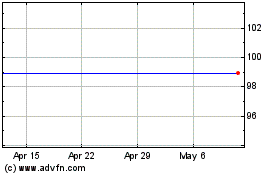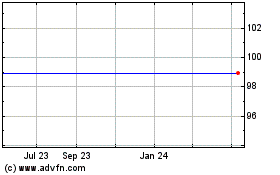By Christopher Mims
HBO's original content, such as Game of Thrones, shown, has
helped it weather the changing cable landscape as well as fight off
the big tech players from Silicon Valley
In the future, you will pay lots of money for lots of
entertainment options.
Sound like what you've already got -- a bundle of cable
channels, voice service and internet access? The merger of AT&T
and Time Warner, approved Tuesday by a judge after a long delay, is
more proof that this reality will endure.
We've been headed in this direction for years, as AT&T
acquired DirecTV, and fellow telecom giants Comcast and Verizon
each beefed up on content and moved into each other's turfs.
Tech companies, meanwhile, have done a fair job of destabilizing
the existing players. Netflix, Amazon and Google's YouTube have
redefined the TV show, while the smartphones and set-top boxes
powered by Apple and its competitors have changed our viewing
habits. Everything is on demand, everywhere.
But the entertainment companies, which still control the most
popular brands and content, saw what happened when Apple took over
the music business. So they sought refuge with big media
conglomerates. This battle with tech companies was Time Warner's
primary argument in favor of its acquisition by AT&T. As a
result, Steve Jobs's famous deathbed promise to reinvent broadcast
TV hasn't happened. For now, at least, the internet will not be
disrupting the bundle.
The Justice Department's chief antitrust lawyer argued that this
merger would "greatly harm" consumers with "higher bills and fewer
of the new, emerging innovative options." It's not clear that it
will, as U.S. District Judge Richard Leon ruled. But the deal also
will mean more of the same: bigger -- not cheaper -- packages of
entertainment rather than the a la carte, pay-as-you-go custom
content that many customers have long desired.
Then Like Now
The classic triple play -- call it the boomer bundle -- included
many TV channels, broadband internet and a landline.
With the rise of streaming, bundles were thought to be on the
way out, making way for extremely personalized offerings: You pick
your internet provider, your phone carrier and the assorted video
sources you like, be they channel apps like HBO Go, low-cost
libraries of content like Hulu or Netflix, or full lineups from
Comcast's Xfinity or AT&T's DirecTV.
Now the big bundle looks set for a comeback. Not only is
AT&T about to get Time Warner, which includes HBO, CNN, the
rest of the Turner channels and the Warner Bros. movie studio, but
Comcast, already owner of NBCUniversal, is likely to pursue 21st
Century Fox, sucking up yet more content. (21st Century Fox and
Wall Street Journal-parent News Corp share common ownership.)
Internet service providers will have the opportunity to offer
content produced by their entertainment divisions free to
customers, or as part of competitively priced packages. (When
streaming content is offered free, it is known as "zero rating.")
With the end of net neutrality -- which would have kept the
internet's gatekeepers from abusing their power to charge other
companies for carrying their data -- telecom giants are more likely
to aggressively pair their offerings with free content. And as
usual, they'll license content to one another.
The biggest difference between the aforementioned boomer bundle
and this new millennial one is that you can access content through
more devices, in more ways.
Wireless is already becoming a much bigger part of entertainment
delivery, and wireless providers will include more content as part
of their unlimited service plans. Meanwhile, as next-generation 5G
networks become a thing, companies such as Comcast will offer
wireless service.
Competition among wireless carriers -- especially pressure from
T-Mobile -- has helped to drive down the cost of wireless plans.
Content deals will probably mean internet service providers will
encourage people to opt for the premium end of their menus.
(Verizon may need a studio of its own; content from AOL and Yahoo
can't compete with the output of HBO and Fox.)
Standing apart from these vertically integrated
entertainment/internet megacorps, Netflix is, ironically, the new
HBO: the one service everyone has to offer, or at least not
throttle, even if they legally can.
Netflix's strength is its original programming, the same
differentiator that's helped HBO weather the changing cable
landscape. Sure enough, in April, Comcast announced it would start
including Netflix in some cable bundles.
Like Comcast, Disney has its eye on Fox: Whichever company gets
Fox ends up with a majority ownership of Hulu, a popular digital
property in its own right. In other ways, Disney finds itself in a
similar position to Netflix. Disney intends to launch a
family-friendly streaming service, and it already has the
stand-alone ESPN+ internet offering.
Tech to the Rescue?
If you thought a tech columnist was going to say that,
eventually, a full range of name-brand choices -- from sports to
late night to sitcoms to drama -- will come from Apple, Google,
Amazon and/or Facebook, you thought wrong. It's not going to
happen.
These megamergers will probably further stymie the efforts of
Apple and Google to disrupt the video market with set-top boxes and
content deals. Both companies have deep pockets, but it's hard to
have leverage over competitors and consumers when your set-top
boxes are nearly interchangeable and you don't own an HBO or an
ESPN. YouTube, Apple, and now even Facebook are fighting back with
original and exclusive content, but in a world where there are
nearly 500 scripted shows already, these nascent efforts have
difficulty gaining traction.
The tech giant least likely to break stride is, as ever, Amazon.
The company seems to view its video offerings primarily as a way to
keep customers coming back to that other bundle so many of us have
succumbed to: Prime.
In the old days, we paid for hundreds of channels and watched
only a few. In the future, we'll pay for thousands, from a similar
handful of providers. We'll just cherry-pick our entertainment
using more sophisticated tools, and enjoy it anywhere, not just on
the couch. Here's to...progress?
Write to Christopher Mims at christopher.mims@wsj.com
(END) Dow Jones Newswires
June 13, 2018 09:48 ET (13:48 GMT)
Copyright (c) 2018 Dow Jones & Company, Inc.
Time Warner (NYSE:TWX)
Historical Stock Chart
From Mar 2024 to Apr 2024

Time Warner (NYSE:TWX)
Historical Stock Chart
From Apr 2023 to Apr 2024
